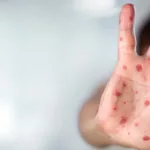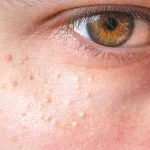Hey there! Imagine you’re sitting on your couch, maybe with a warm mug of tea, daydreaming about your future family. You’re excited, but there’s that little whisper of worry too—what if something’s different with my child? It’s totally normal to wonder about things like autism, especially with all the buzz about genetic testing these days. Can it really tell us if a baby might have autism before they’re even born? That’s a big question, and I’m here to walk you through it, step by step, like we’re chatting over coffee.
Genetic testing for autism is one of those topics that feels both fascinating and a little overwhelming. As a friend who’s dug into this, I want to share what I’ve learned in a way that’s easy to grasp—no science degree required! We’ll cover what it is, how it works, whether it can spot autism in the womb, and even stuff like costs and where to get it done. My goal? To give you clear, trustworthy info so you feel empowered, not lost. So, let’s get comfy and dive into this together!
Understanding Genetic Testing for Autism
Okay, let’s start with the basics. What’s this genetic testing for autism all about? Picture your DNA as this amazing recipe book that makes you, you. Sometimes, there are tiny typos in that book—little variations or mutations—that might nudge things like autism spectrum disorder (ASD) into the picture. Genetic testing is like a super-smart librarian scanning that book to spot those typos, especially ones tied to conditions like Fragile X syndrome, which pops up a lot with autism.
But here’s the twist: autism isn’t just one simple ingredient gone wrong. It’s more like a stew with a bunch of genetic and environmental flavors mixed in. So, genetic testing? It’s not a crystal ball saying, “Yep, autism’s here!” It’s more like a clue—a piece of the puzzle that might help some families. Pretty cool, right? But also not the whole story. Let’s break it down more.
What is Genetic Testing for Autism?
So, genetic testing for autism means checking someone’s DNA for hints about ASD. It’s like detective work, looking for specific changes linked to autism or related conditions. According to Autism Speaks, less than half of folks with autism get this testing, even though experts recommend it to uncover possible causes or health clues.
- Types of Tests: There’s chromosomal microarray analysis (CMA)—fancy name, huh?—which spots tiny missing or extra DNA bits. A study from PMC says it catches big changes in 18.2% of cases. Then there’s whole exome sequencing (WES), zooming into protein-making genes, and tests just for stuff like Fragile X.
- How It Happens: Usually, it’s a quick blood draw—nothing scary! For babies in the womb, it might be chorionic villus sampling (CVS) or amniocentesis, as UT Southwestern Medical Center explains. Labs then decode the DNA and report back.
It’s like getting a sneak peek into your genetic story—helpful, but not the full chapter on autism.
Can Autism Be Detected in the Womb?
Now, the million-dollar question: Can we find out about autism before a baby arrives? I get it—you want to be ready, especially if autism runs in the family. The honest answer? Not quite yet. Right now, there’s no test that says, “This baby will have autism,” prenatal-style. Why? Autism’s signs usually show up around age two, and it’s this tricky blend of genes and life stuff, not just one clear marker.
- What We Can Do: Prenatal tests can catch some genetic quirks tied to autism, like Fragile X (where 33% might show autism traits). But a positive result? It’s just a “maybe,” not a “definitely.” The Transmitter notes these tests only hint at risks, not certainties.
- The Ethical Bit: Here’s where it gets heavy. If you find a risk, what then? A study from PMC talks about tough choices, like whether to continue a pregnancy. That’s why counselors are key—they help you sort through it all.
It’s a bit like peeking through a foggy window. Science is trying hard, but we’re not there yet. What do you think about that balance of hope and uncertainty?
How Does Genetic Testing for Autism Work?
Let’s say your doctor suggests genetic testing for autism—maybe for your kiddo or even before pregnancy. What’s the process like? It’s simpler than it sounds, promise! It starts with a chat with someone like a pediatrician or geneticist. They’ll take a little blood sample—think of it as a quick pinch—and off it goes to a lab.
- The Steps: In the lab, they use tools like CMA to check for DNA glitches or WES to read specific gene chapters. It’s high-tech but routine for them!
- What They Look For: Stuff like missing DNA chunks or mutations in genes like FMR1 for Fragile X. PMC dives into how they spot these.
- Getting Results: After a few weeks, a genetic counselor explains it all. Might be a clear answer, a “we’re not sure” (called a variant of unknown significance), or nothing found. It’s a lot, but they’re there to help you through it.
It’s like sending your DNA on a little adventure—and you get the map back to understand it!
➤ Curious about related conditions like ADHD? Check out whether your PCP can prescribe ADHD medication.
Benefits and Limitations of Genetic Testing for Autism
So, why bother with this? And what’s the catch? Let’s weigh it out together.
- The Good Stuff: Finding a genetic clue can be a relief—like finally solving a mystery. It can guide early therapy, spot health risks, or help plan for more kids. Labcorp says it might even unlock funding for support.
- The Limits: Not every autism story has a genetic page we can read yet. Sometimes you get a “huh?” result that’s confusing. And prenatally? It’s a Pandora’s box—big ethical questions with no easy answers.
It’s a tool, not a fix-all. Ever wonder how you’d feel getting that kind of news?
➤ Looking for long-term guidance for neurodiverse individuals? Check out this ADHD-friendly career guide.
Costs Associated with Genetic Testing for Autism
Alright, let’s talk money—because healthcare isn’t cheap, right? Genetic testing for autism costs depend on what you’re testing and where you are.
- Price Tags: A CMA might run $1,000-$2,500 without insurance, per Golden Care Therapy. Fragile X? Around $300-$400. WES can hit higher, like CAD$1,655, says Genetics in Medicine.
- Insurance: Good news—your plan might cover it if it’s “medically necessary.” Check those details!
- Help Out There: Some programs, like SPARK via Autism Speaks, offer free or low-cost options.
Here’s a quick look:
| Test Type | Cost Range (USD) | Insurance? |
|---|---|---|
| CMA | $1,000 – $2,500 | Maybe, if needed |
| Fragile X | $300 – $400 | Often covered |
| WES | ~CAD$1,655 | Plan-dependent |
Don’t let costs scare you—there’s help if you need it!
Where to Get Genetic Testing for Autism
Ready to explore this? Here’s where to start. Chat with your kid’s doctor—they’ll point you to a geneticist or counselor. Places like Labcorp or BluePrint Genetics are pros at this. For prenatal, your OB-GYN or a specialist can guide you. Just a heads-up—those online DNA kits? Fun, but not the real deal for autism.
Latest Research and Developments
Science is buzzing! A 2024 study from ScienceDaily linked genetic risks to brain changes, digging into 800,000+ brain bits. Another from ScienceDaily found new ASD genes. Big projects like PsychENCODE, via UCLA Health, are mapping it all out. It’s slow, but exciting—better tests might be coming!
Let’s Talk Through Some Common Questions
Got questions? Here’s what I hear a lot:
- Do I need it? Not a must, but it can clarify things—talk to your doc!
- What’s it like? Blood test, wait, then chat with a counselor.
- How accurate? Depends—CMA’s solid for some stuff, but not a sure bet for autism.
- Insurance cover it? Maybe—dig into your plan!
Conclusion
So, here’s the scoop: Genetic testing for autism can shine a light on risks, especially for conditions like Fragile X, but it’s not a prenatal fortune-teller. It’s a tool—helpful, imperfect, and worth considering with your doctor. Costs vary, but there’s support out there. And science? It’s pushing forward every day. What’s your next step? Whatever you choose, you’re not alone—share your thoughts if you’d like!

























Leave a Reply
You must be logged in to post a comment.